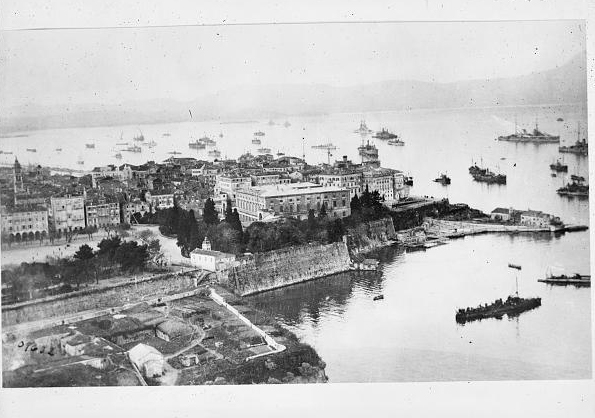Fears for European peace as Mussolini’s Italy bombards and occupies Corfu
Corfu, 3 September 1923 - Fear about the future peace and stability of Europe are growing following a bombardment of the island of Corfu on the 30th of August by Italian forces and the dismissal by Italy’s Prime Minister, Signor Benito Mussolini, of any role for the League of Nations in de-escalating the tensions.
The Italian assault followed the murder of members of an Italian mission led by General Tellini, President of the International Commission for the Delimitation of the Greco-Albanian Frontier on the island of Corfu.
The Greek government denies that it is in any way responsible for what it says was an ‘odious crime....against citizens of a friendly Power, who were charged with an international mission.’ In addition to expressing its regrets to the Italian government, the Greek government also says it will organise a memorial service for the victims to be held in the Catholic church in Athens at which all members of the Government will be present. However, the Greek government insisted that it could not accept the Italian government’s demands - set out in an official note and widely reported - as to the course of action it should take in response to the killings. To do so would, it insisted, infringe upon the honour and sovereignty of the Greek State.
Corfu is the nearest point of Greece to Italy, situated about 150 miles from the Italian naval base at the Port of Tarantao. It has an estimated population of 91,000.
A Pathé report from 1923 on ‘Corfu. The Greek Island seized by Italy and which becomes Europe's new "storm centre"’
A statement issued by an official Italian source says that an ‘Italian squadron appeared before Corfu and demanded the surrender of the town. On the expiry of the time granted, the white flag not having been hoisted as had been demanded ...it was necessary to fire a few shots from small calibre guns at the fortress. ’
The Italians claim that it is the Greek authorities who were to blame for the subsequent loss of life. Furthermore, Signor Mussolini and his government have made it clear that if the League assumes responsibility for deciding the issue, it will withdraw from the League.
The concern among European powers is that the events of recent days will trigger a wave of unrest in the Balkan region. Lord Robert Cecil, after attending a meeting of the Council of the League of Nations, said that he failed to see how Italy’s actions could be characterised as pacific, given that Italian warships were used to bombard the island.
The view further afield is much the same, with leading American publications like The New York Times and the Tribune placing the blame for the current crisis squarely on the shoulders of Signor Mussolini and his Italian government.
[Editor's note: This is an article from Century Ireland, a fortnightly online newspaper, written from the perspective of a journalist 100 years ago, based on news reports of the time.]





















